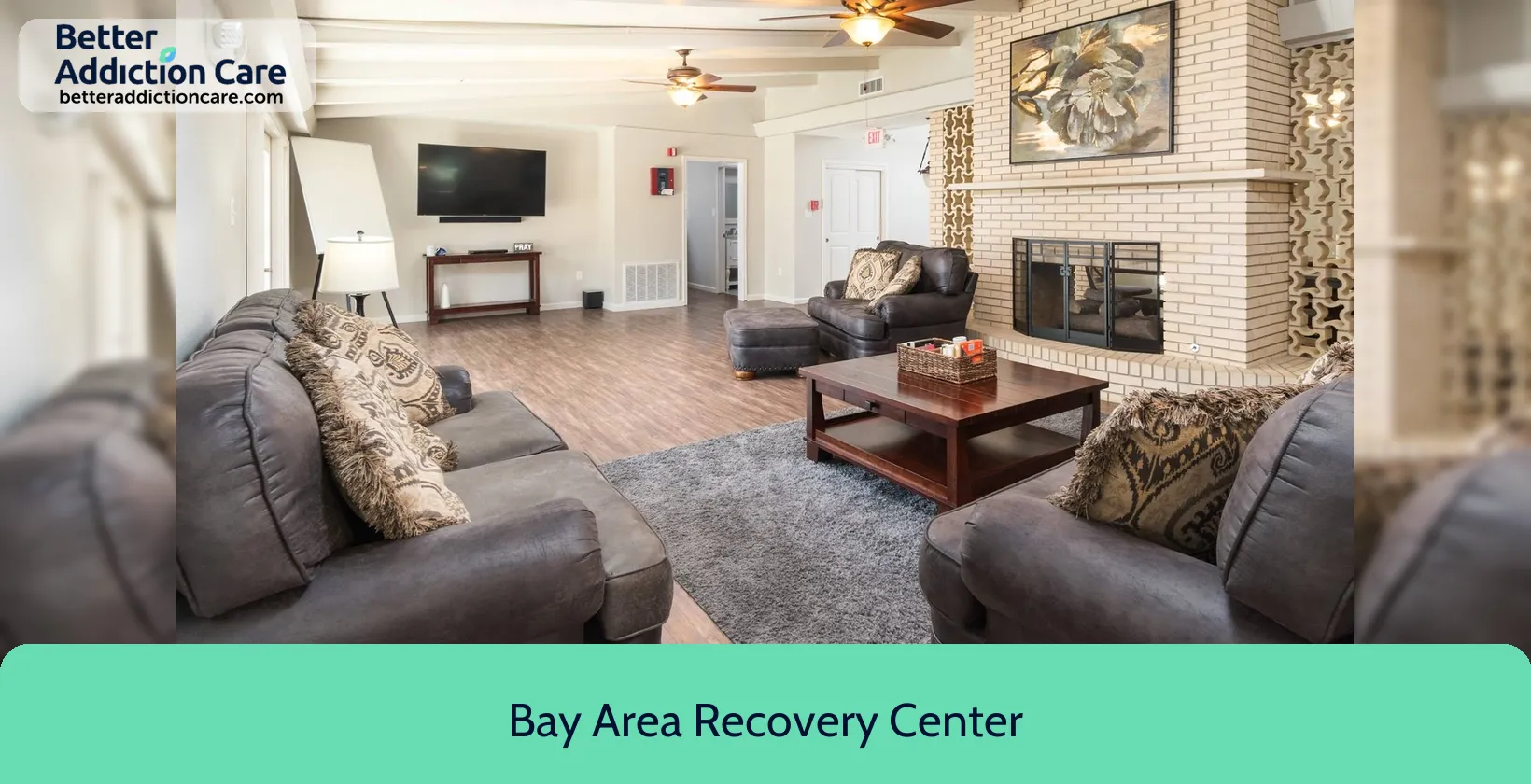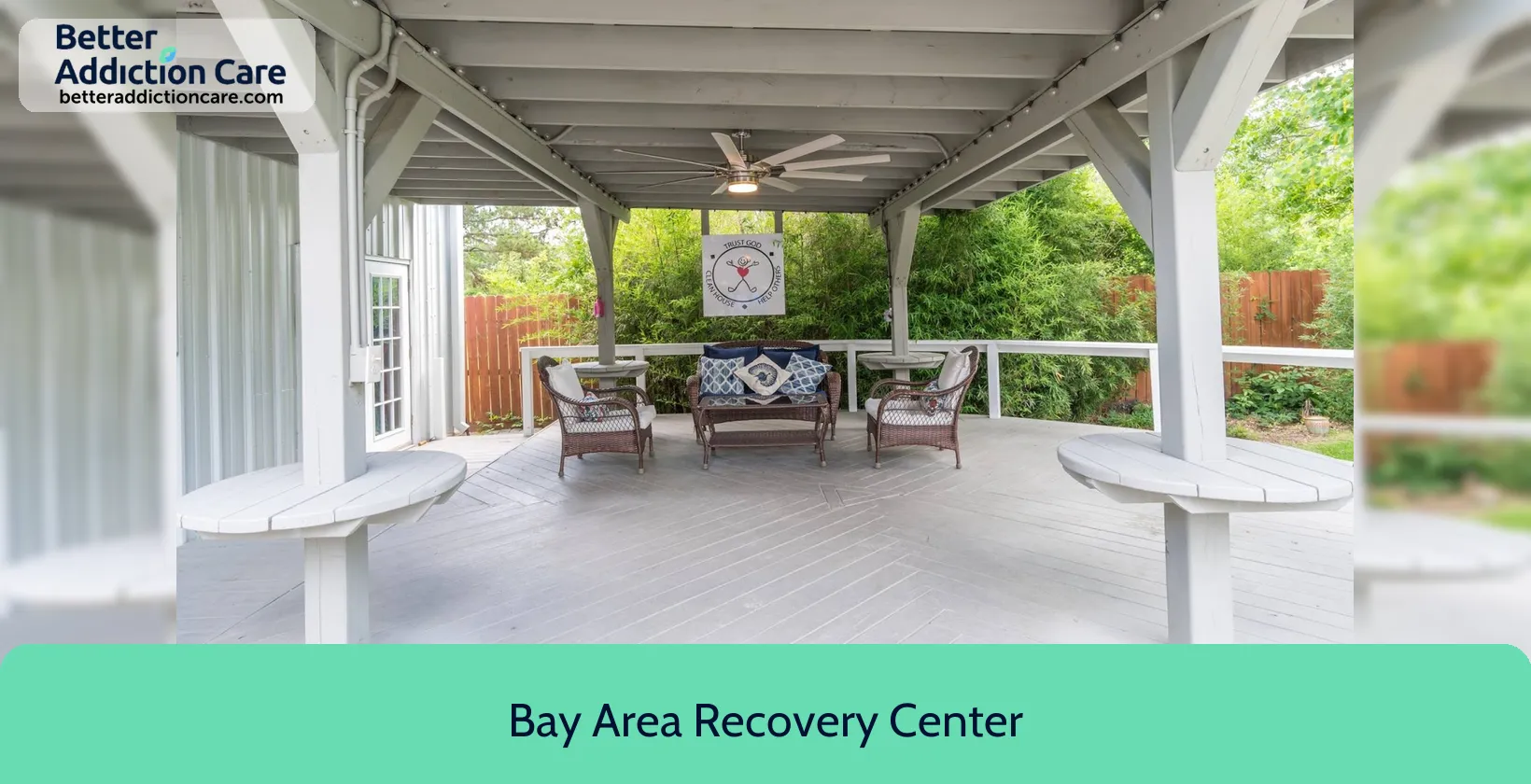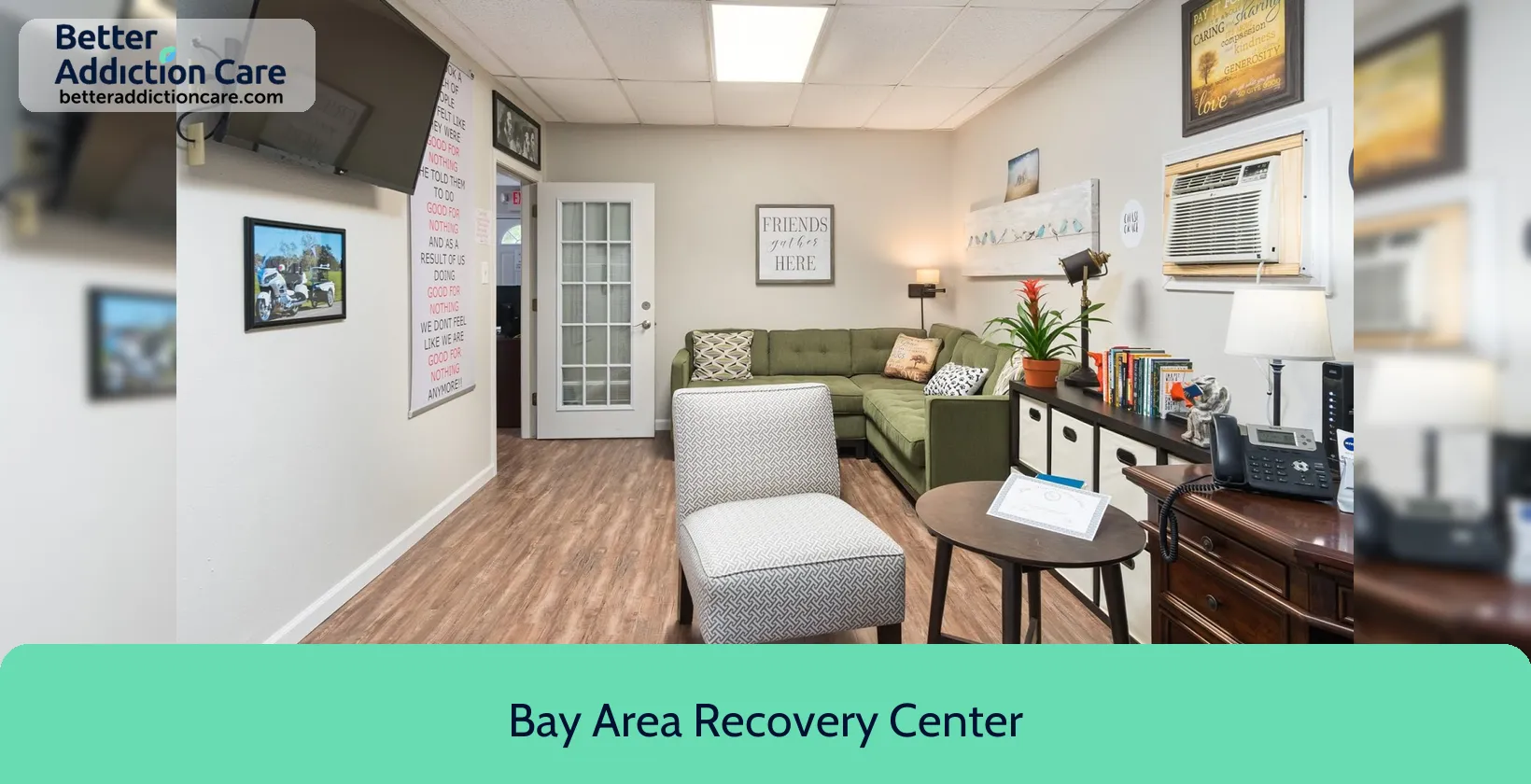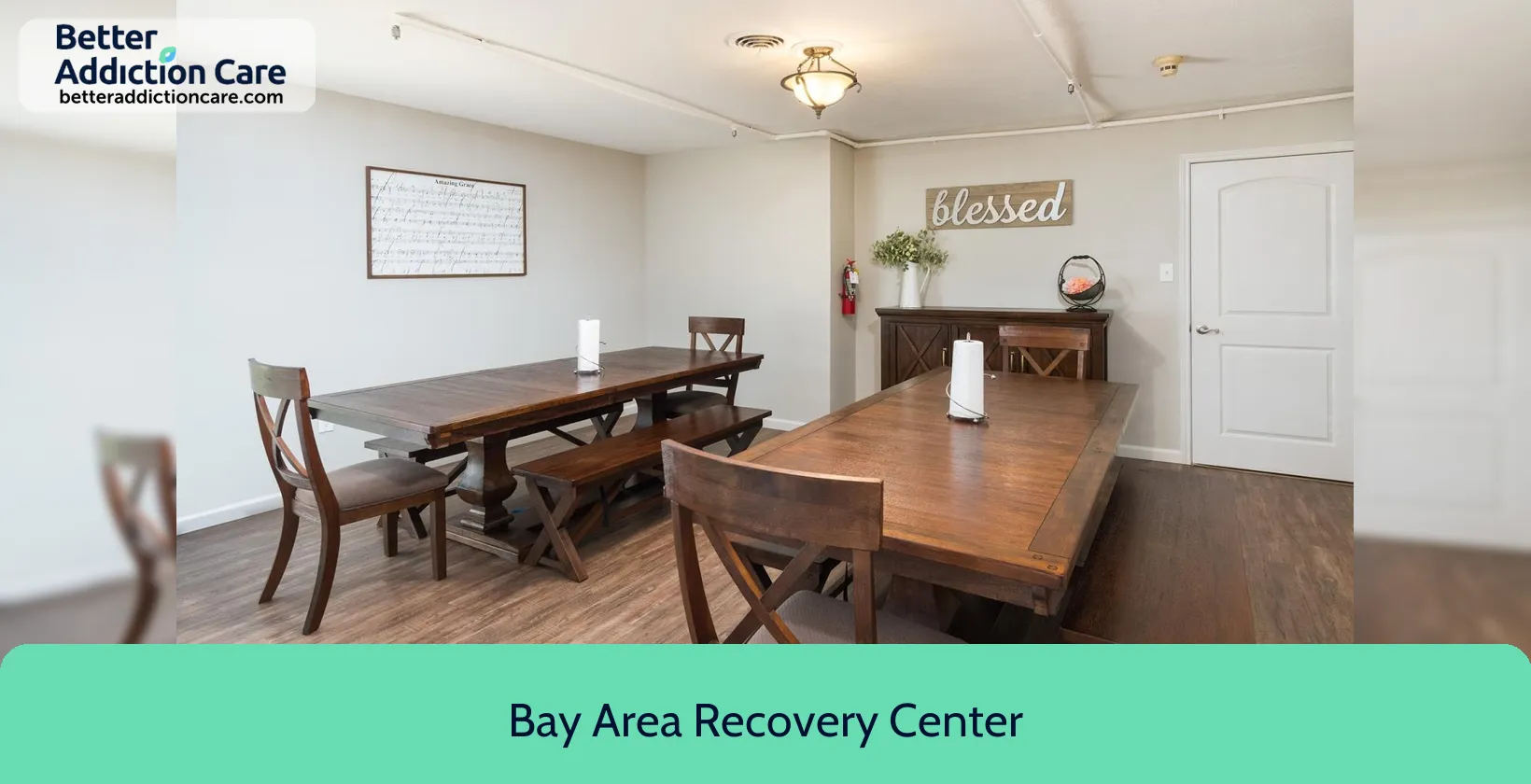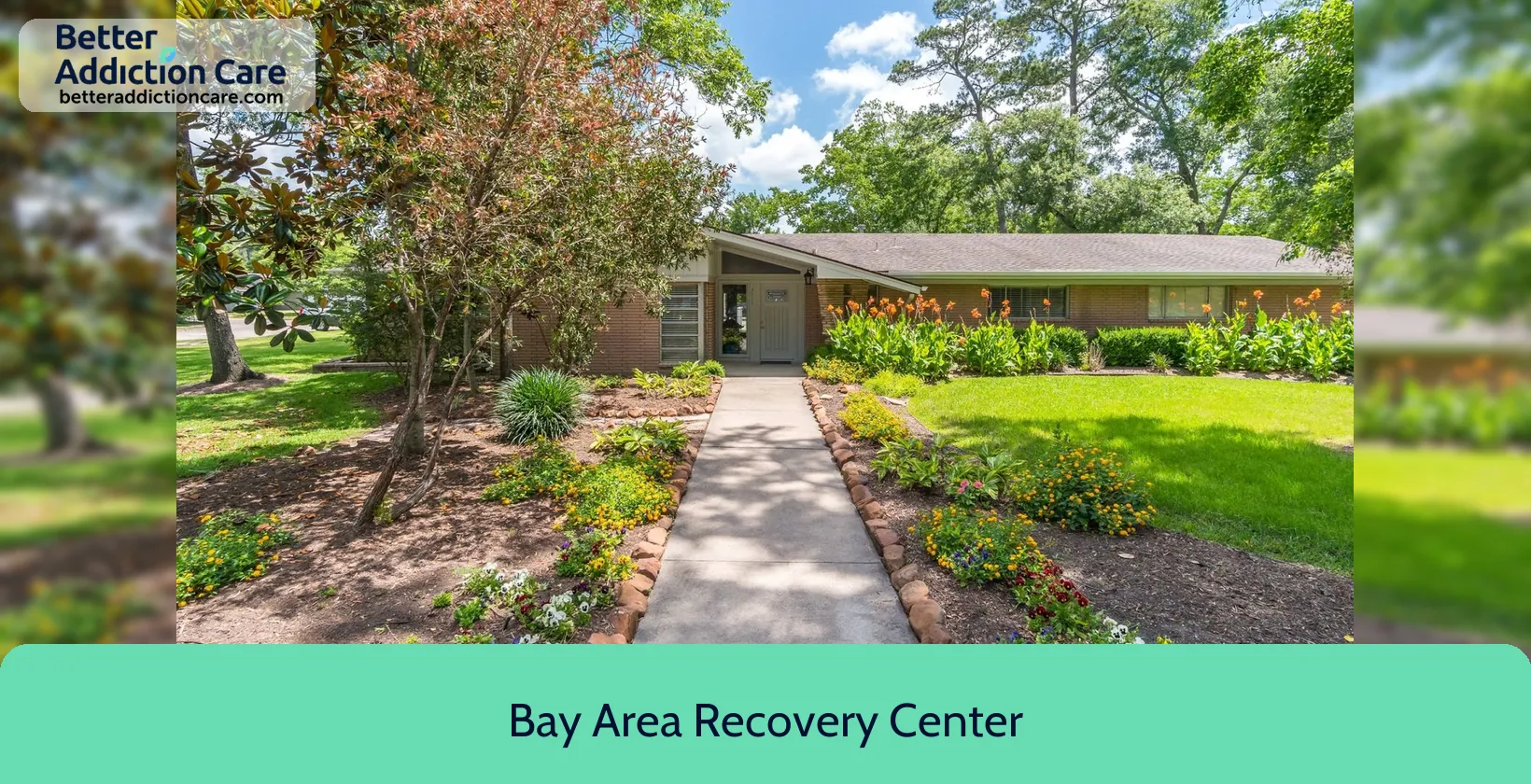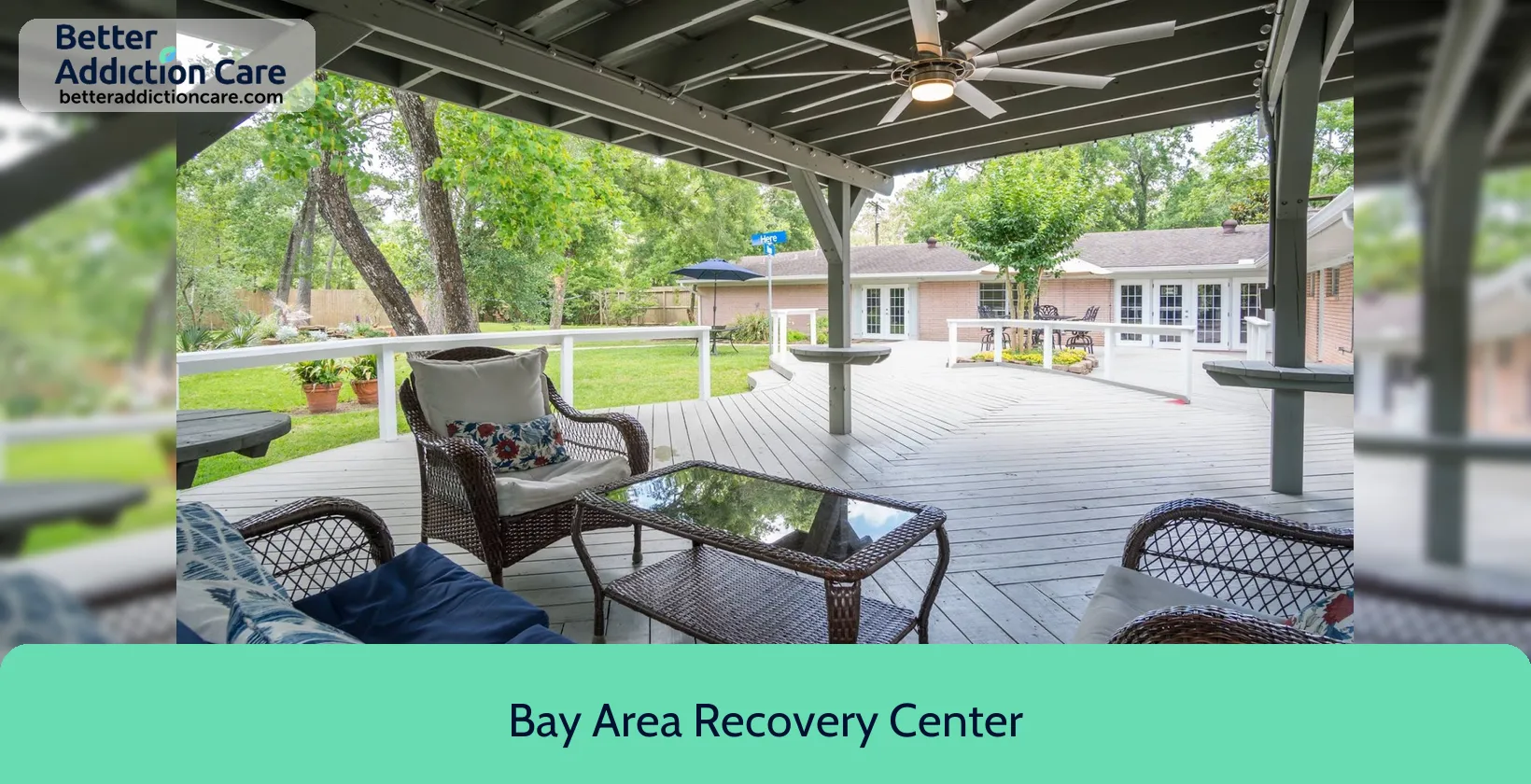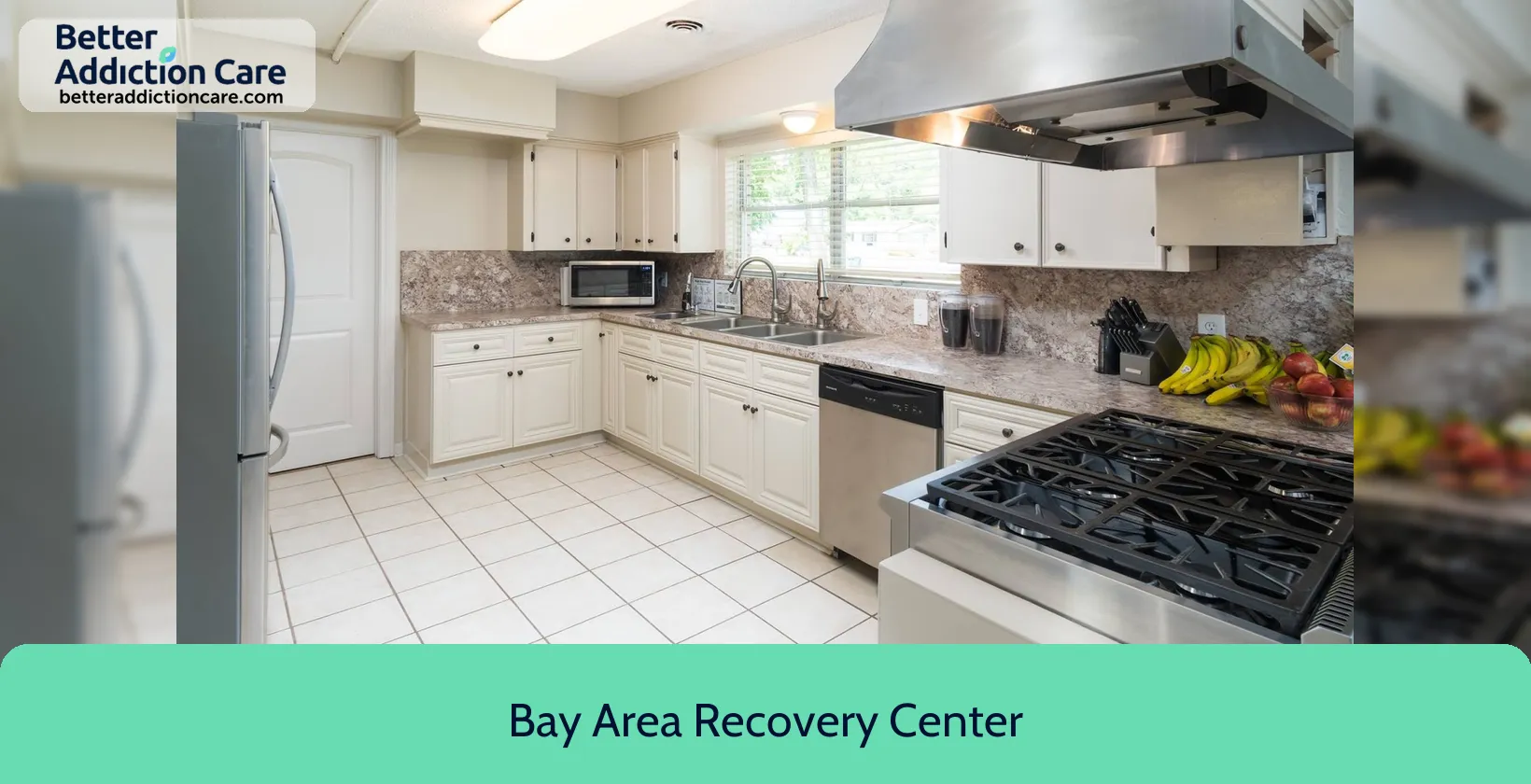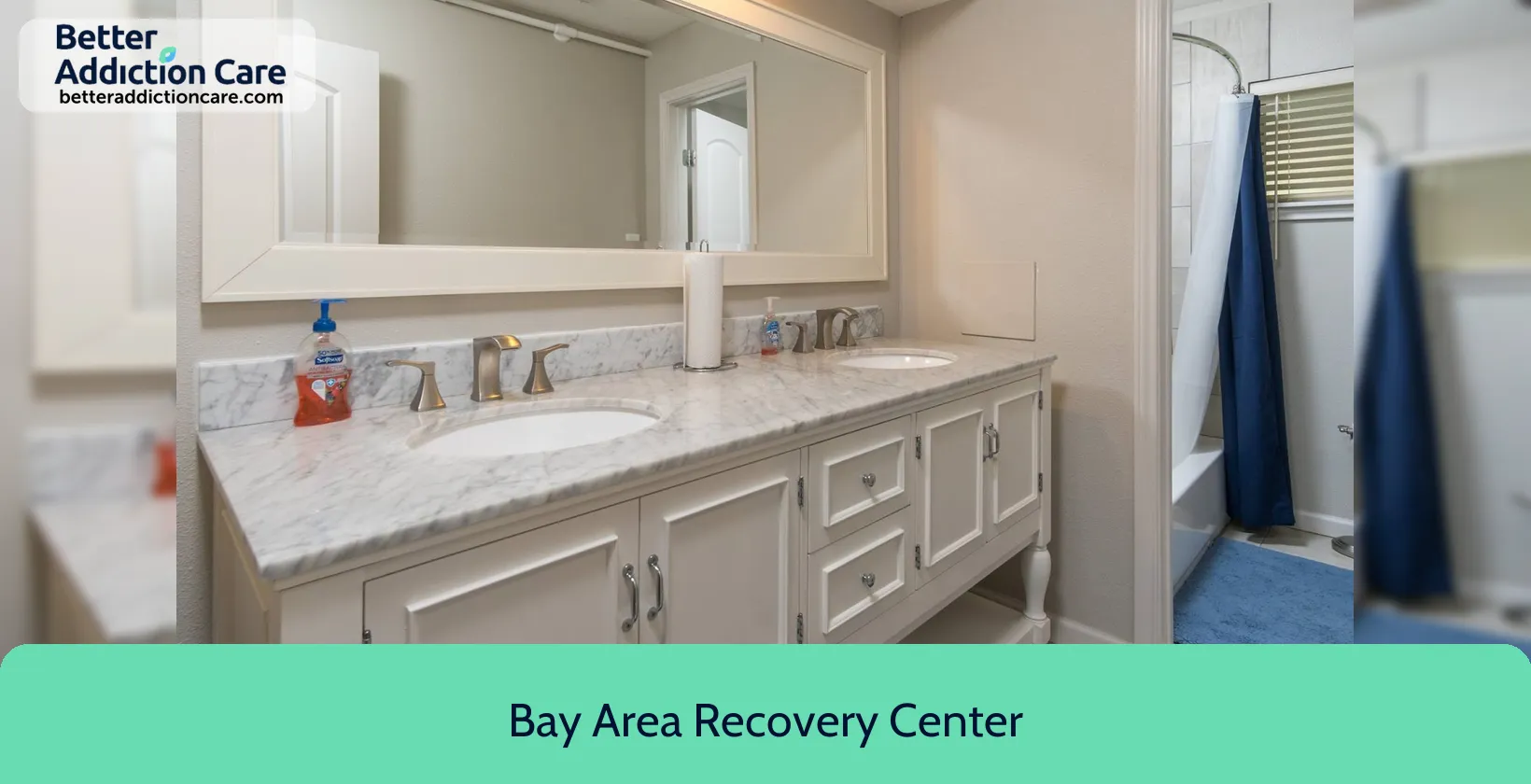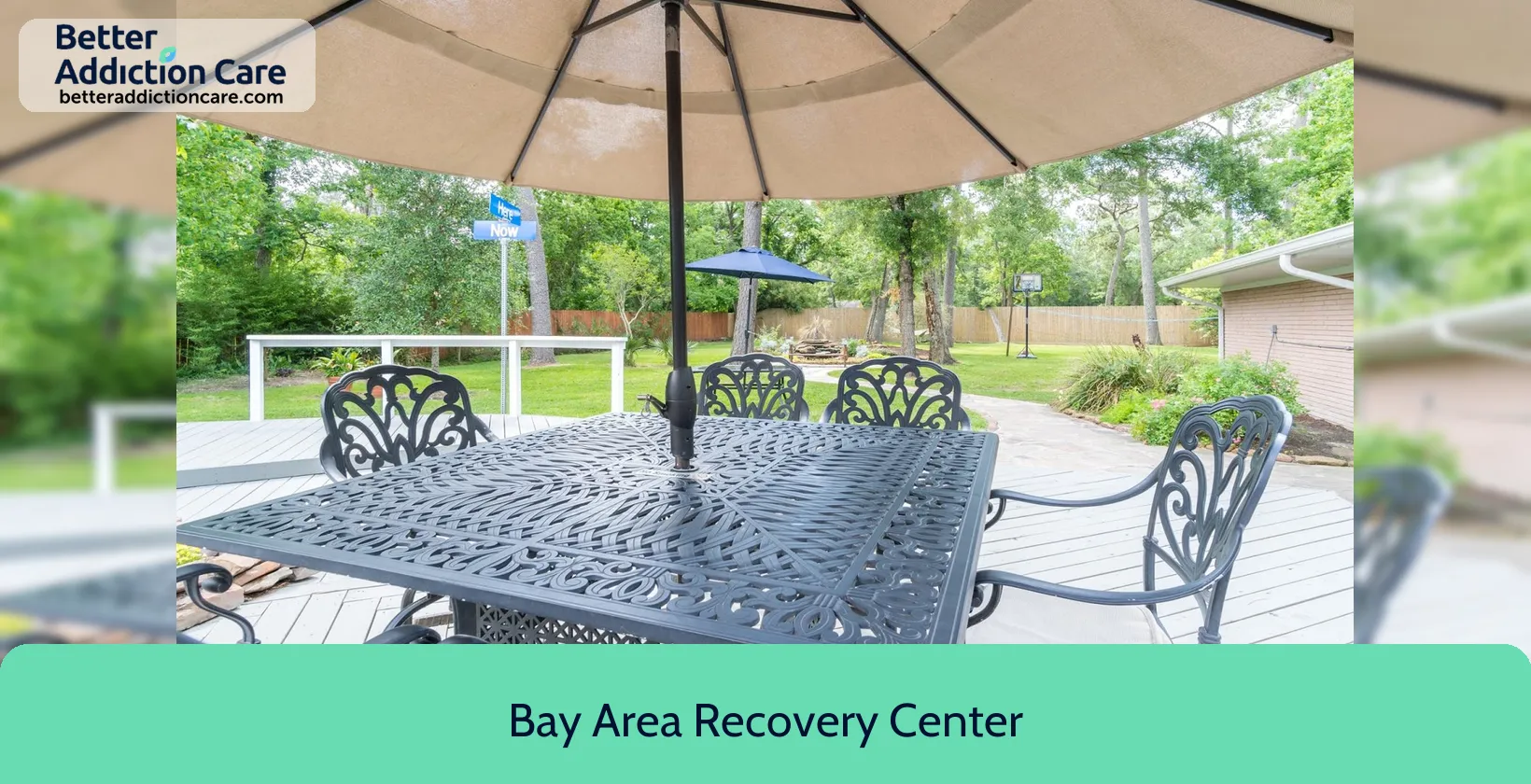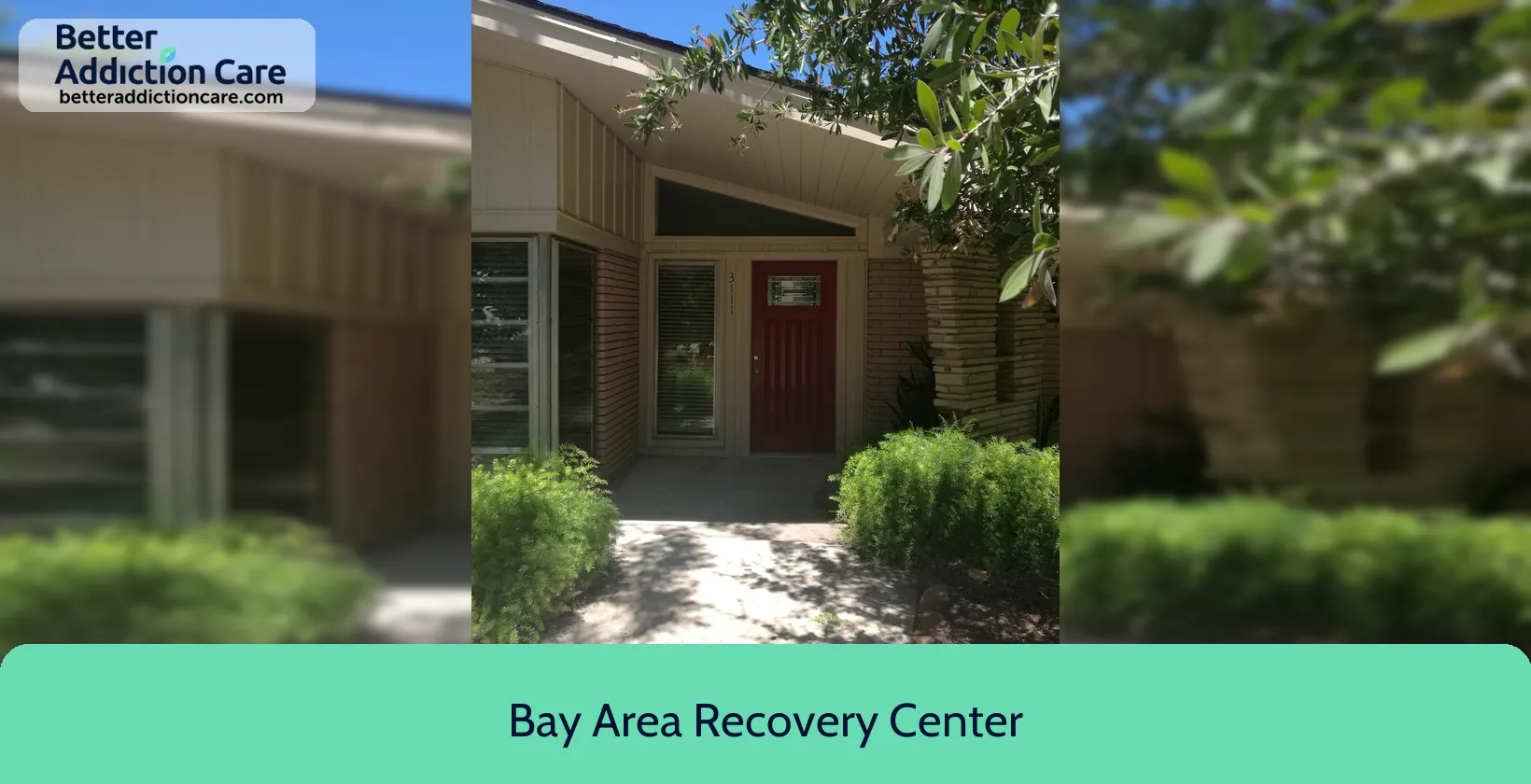Bay Area Recovery Center
Overview
The Dickinson, Texas-based Bay Area Recovery Center is an inpatient rehabilitation center that only helps women ages 18 and up. There are 30, 60, and 90-day residential programs at the center, as well as other treatment choices that are made to fit the needs of each resident. Bay Area Recovery Center also has Partial Day Residential Programs for people who need a less thorough approach. These programs give clients a lot of help while still letting them have some freedom in their daily lives.The center stresses a complete approach to treatment, beginning with Medically Assisted Detoxification to safely handle withdrawal symptoms. Bay Area Recovery Center uses a variety of therapy types, such as Cognitive Therapy, Behavioral Therapy, and Group Therapy, to deal with the mental and emotional parts of addiction. Residents get help learning ways to deal with stress and causes that work well for them. The institution also gives one-on-one counseling sessions, which make the road to recovery more personalized.
The Twelve-Step support group model is used at Bay Area Recovery Center to help people connect with each other and share their stories. The center also helps people grow as people by offering Personal Social Adjustment Training and Vocational Adjustment and Employment Readiness Training. These programs give clients the skills they need to get back into society. The center helps women with specific behavior problems by offering services like Anger Management Classes. This ensures a complete healing process that gets women ready for a healthy, successful life after treatment.
Bay Area Recovery Center at a Glance
Payment Options
- Cash or self-payment
- Medicaid
- State-financed health insurance plan other than Medicaid
- Private health insurance
- Federal, or any government funding for substance use treatment programs
Assessments
- Comprehensive substance use assessment
- Screening for substance use
- Complete medical history/physical exam
Age Groups
- Young adults
- Adults
- Seniors
Ancillary Services
- Case management service
- Early intervention for HIV
- Social skills development
Highlights About Bay Area Recovery Center
7.15/10
With an overall rating of 7.15/10, this facility has following balanced range of services. Alcohol Rehabilitation: 8.00/10, Drug Rehab and Detox: 6.62/10, Insurance and Payments: 6.53/10, Treatment Options: 7.46/10.-
Alcohol Rehabilitation 8.00
-
Treatment Options 7.46
-
Drug Rehab and Detox 6.62
-
Insurance and Payments 6.53
Accreditations
SAMHSA certification for opioid treatment program (OTP):
Accreditation by the Substance Abuse and Mental Health Services Administration (SAMHSA) for Opioid Treatment Programs (OTPs) signifies that a program has met strict standards for providing high-quality care to individuals with opioid use disorders. It assures patients, families, and communities that the OTP follows evidence-based practices, employs qualified staff and maintains a safe and effective treatment environment. This accreditation reflects the program's commitment to addressing the opioid epidemic and promoting recovery.
State department of health:

Government agencies issue State Licenses, granting rehabilitation organizations permission to operate their businesses lawfully within specific geographic regions. The specific licenses needed for legal operation are typically determined by the type of rehabilitation program offered by the facility and its physical location.
Registration: 728
Treatment At Bay Area Recovery Center
Treatment Conditions
- Alcoholism
- Substance use treatment
Care Levels
- Hospital inpatient/24-hour hospital inpatient
- Short-term residential
- Long-term residential
- Residential detoxification
- Hospital inpatient detoxification
Treatment Modalities
- Cognitive behavioral therapy
- Substance use disorder counseling
- Trauma-related counseling
- Group counseling
- Family counseling
Ancillary Services
Languages
- Sign language services for the deaf and hard of hearing
- Spanish
- English
Additional Services
- Pharmacotherapies administered during treatment
- Mentoring/peer support
- Breathalyzer or blood alcohol testing
Special Programs
- Clients who have experienced trauma
Get Help Now
Common Questions About Bay Area Recovery Center
Contact Information
Other Facilities in Dickinson

6.86
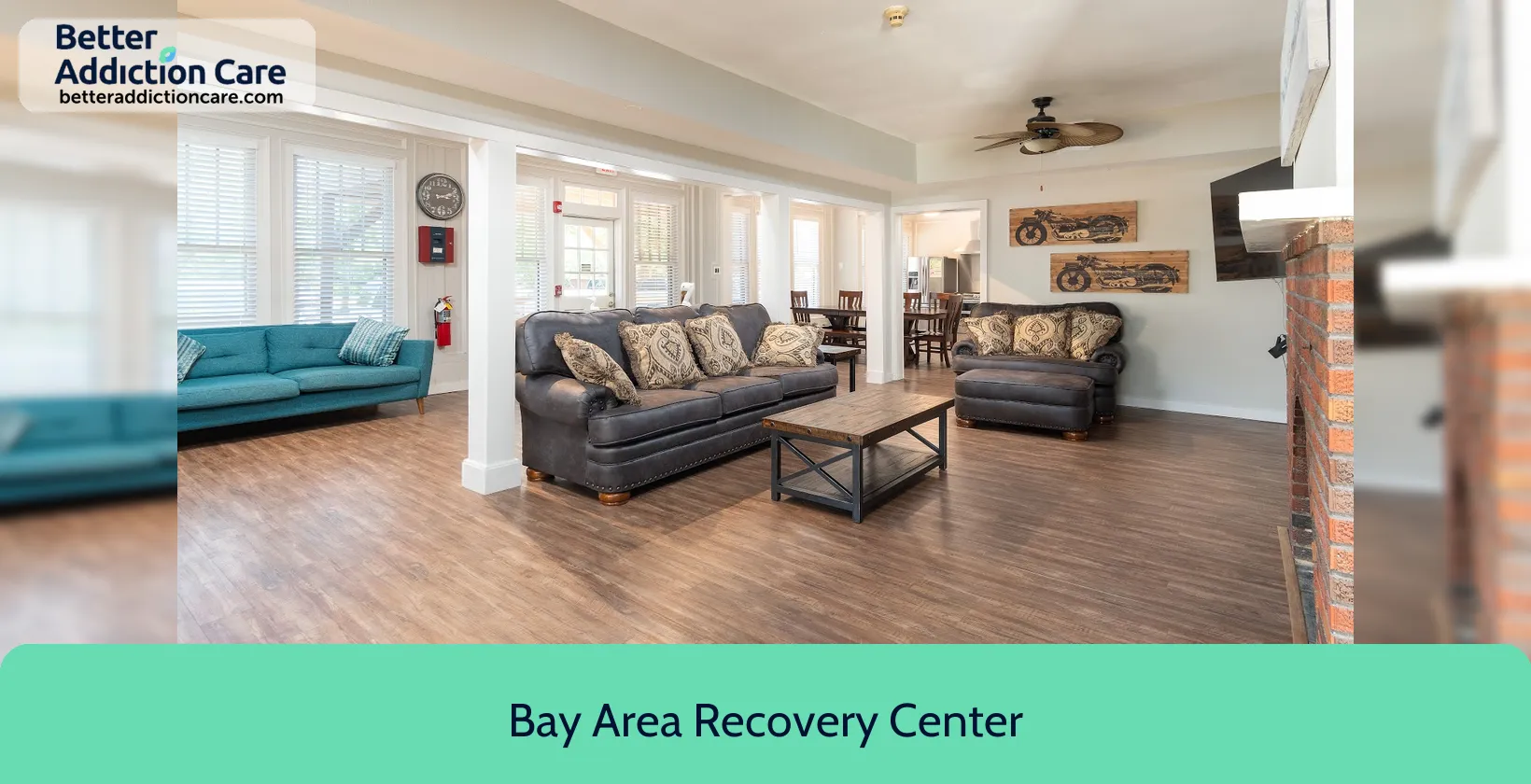
6.86
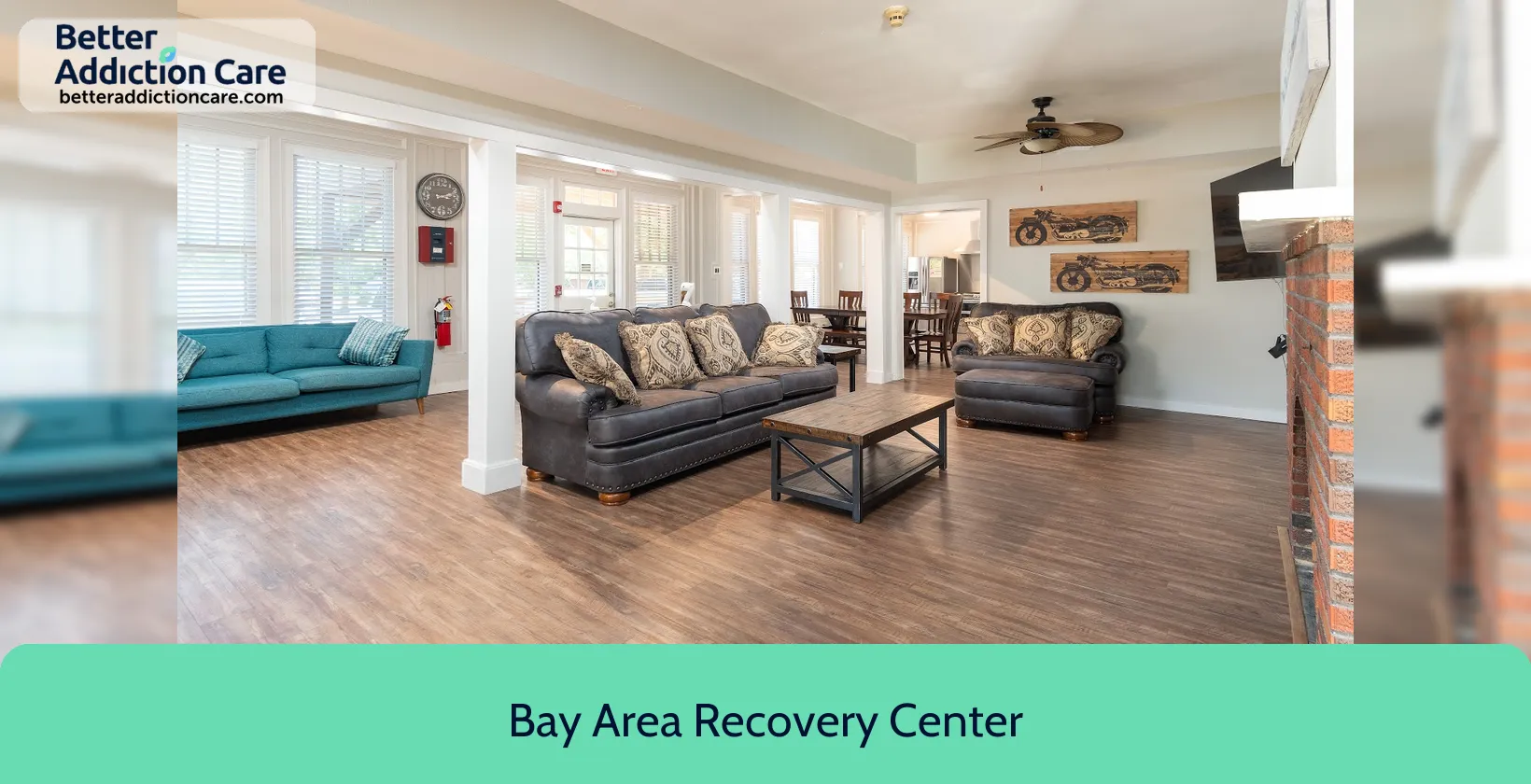
7.44
DISCLAIMER: The facility name, logo and brand are the property and registered trademarks of Bay Area Recovery Center, and are being used for identification and informational purposes only. Use of these names, logos and brands shall not imply endorsement. BetterAddictionCare.com is not affiliated with or sponsored by Bay Area Recovery Center.
